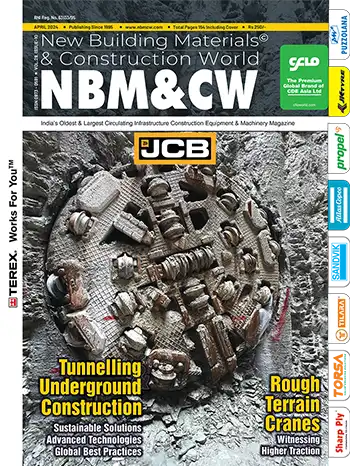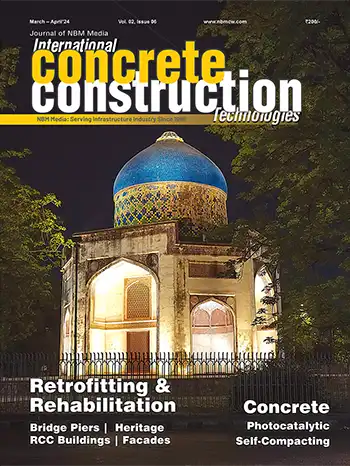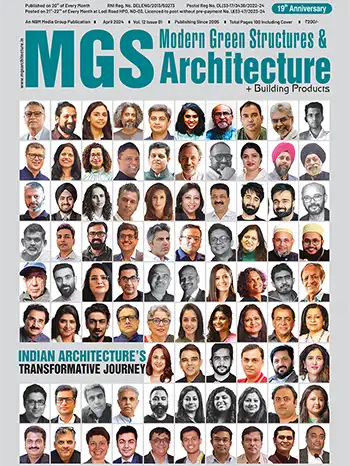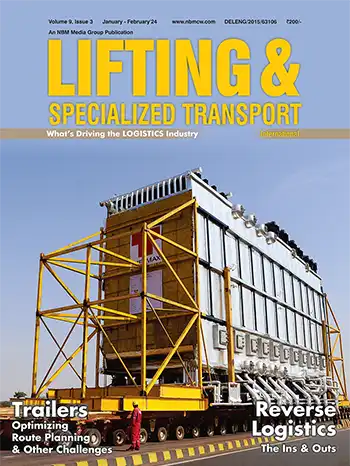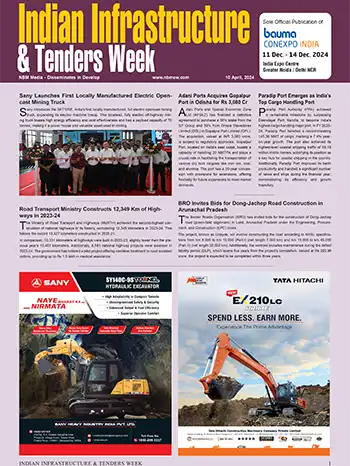Madhusudhan G., Chairman & MD, Sumadhura Group
It is important to integrate use of technologically advanced construction materials with a cost-effective methodology that does not compromise on construction quality by using construction integrated software to plan projects. Some of these technologies are also environment-friendly and emphasize sustainable living.
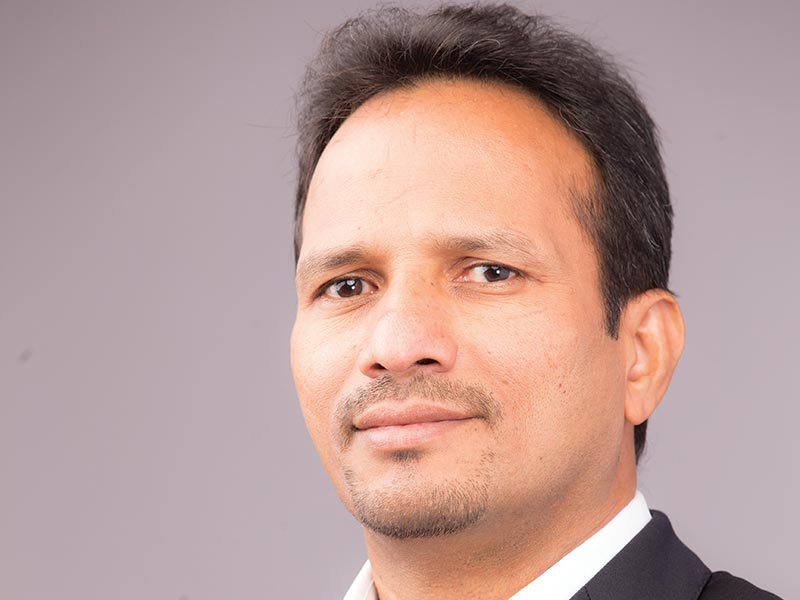 Challenges & Growth Prospect
Challenges & Growth Prospect
According to a report, the Indian construction industry is poised to become the third largest in the world by the year 2025 and expected to reach a market size of $1 trillion by 2030. Factors such as rapid urbanisation, emergence of nuclear families, and rising household income are likely to remain the key drivers for growth in all spheres of real estate, including residential, commercial and retail. This growth has also led to a rise in demand in the proptech sphere, an area where local expertise is limited and cannot entirely cater to the growing demands and varied needs.
The biggest challenge faced by the industry today is the fact that the sector is highly fragmented. There are several unorganised players who work on a sub-contracting basis and delays due to a multitude of factors ranging from obtaining permissions to working capital requirements, are common, as a result. While government reforms such as the RERA act, initiatives such as 100 Smart cities programme etc, have been aplenty, it is important to ensure that these allow the sector to progress right at the grassroots and that they are not counter-productive due to the technicalities involved.
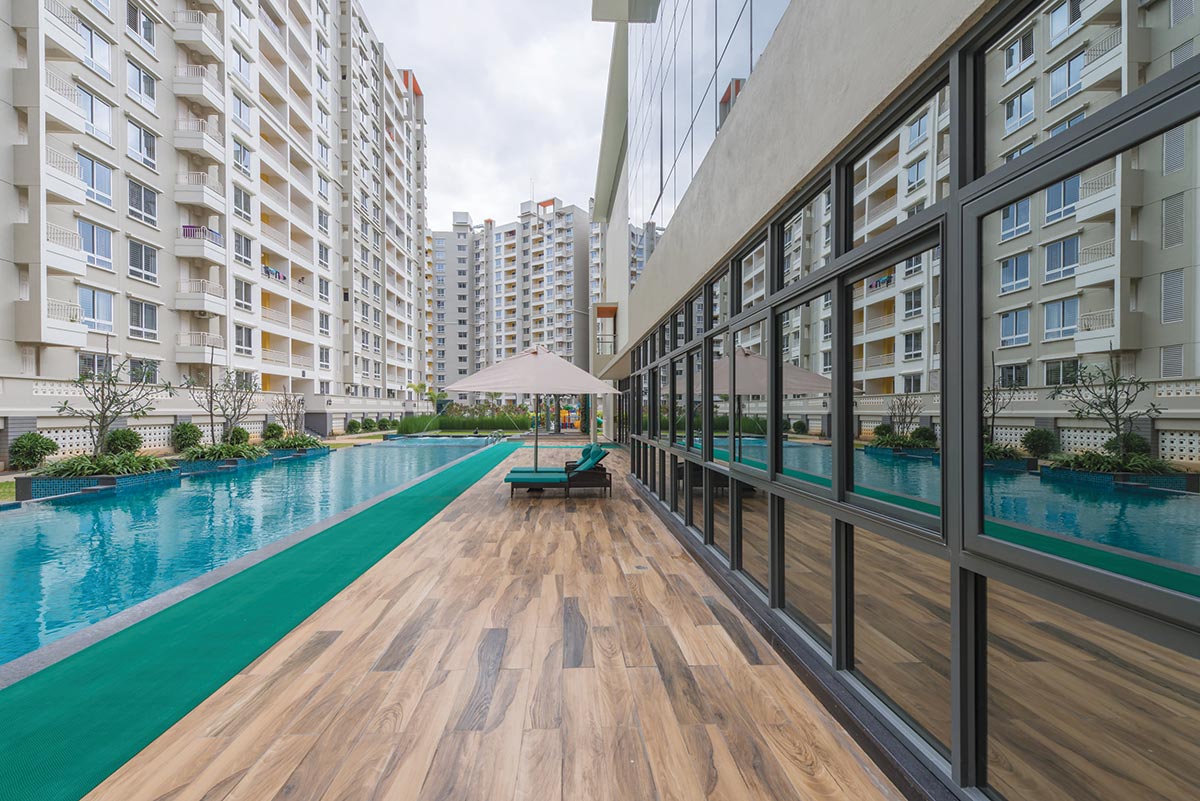 Sumadhura Silver Ripples - Pool Area
Sumadhura Silver Ripples - Pool Area
Efficiency & Accountability
Successful implementation of the backward integration model is one of the key strengths of the Sumadhura Group on the execution front. This allows the company to exert control over both supplies as well as the quality of materials used by it in the projects. We analyse the potential risk areas and identify the requirements of projects by appointing an experienced project manager. We mobilize project specifications before construction begins, deliver designs on time, and focus on punctual procurement of materials.
Apart from these services, backward integration also includes uPVC solutions, interiors, fire, and safety services. In fact, Sumadhura Group has all the competencies and in-house resources to deliver a project from conceptualization to completion.
It is important to integrate the use of technologically advanced construction materials with a cost-effective methodology that does not compromise on construction quality by using construction integrated softwares to plan projects. Some of these technologies are also environment-friendly and emphasize sustainable living. Some of our latest technological adaptations include usage of curing compound additives as curing of RCC which drastically reduces consumption of water during construction.
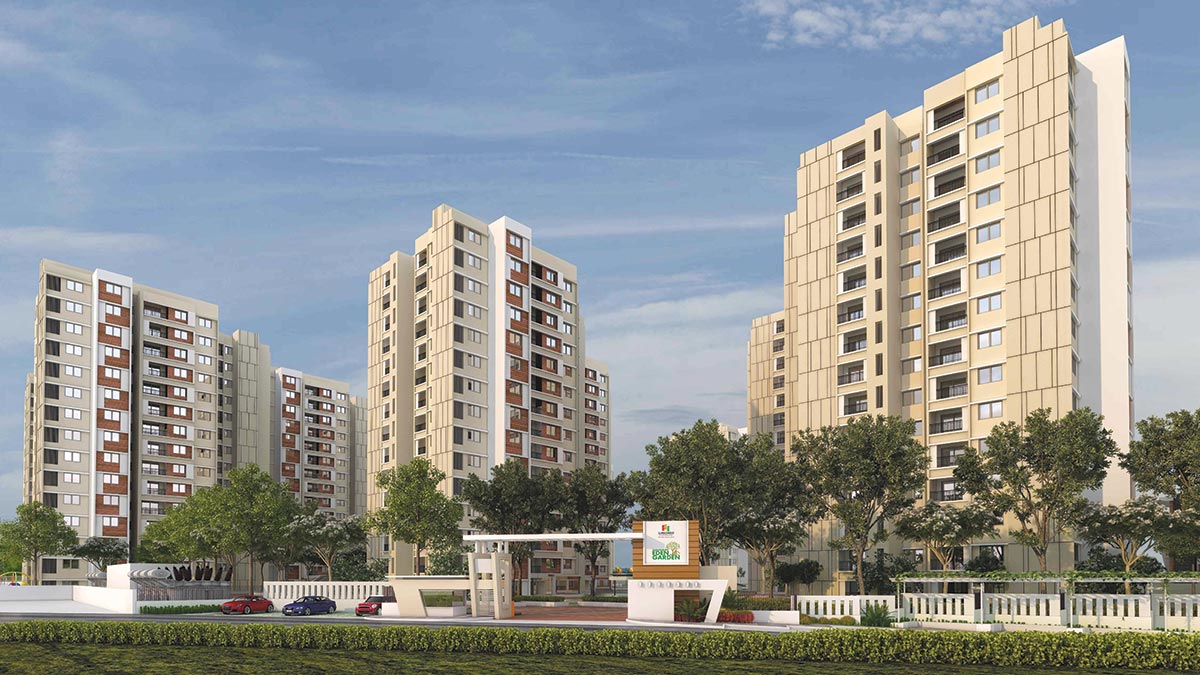 Sumadhura Eden Garden
Sumadhura Eden Garden
In all its residential apartments, the company emphasizes on safety standards, environmental management, rainwater harvesting, and waste management. We use technological innovations like aluminium formwork, lightweight block (AAC blocks), float glass for windows/ventilators, and laminated wooden flooring.
Artificial intelligence & IoT
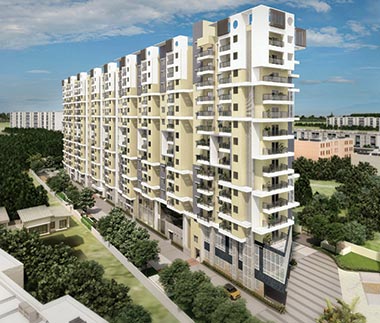 Sumadhura Nandanam
Introduction of various proptech technologies such as virtual reality (VR), augmented reality (AR), blockchain, AI, augmented BI tools, IoT etc. help realtors in maximising their revenue by eliminating operational inefficiencies and improving overall performance of the organisation. These also help in increasing the transparency in the sector in terms of data processing and analytics.
Sumadhura Nandanam
Introduction of various proptech technologies such as virtual reality (VR), augmented reality (AR), blockchain, AI, augmented BI tools, IoT etc. help realtors in maximising their revenue by eliminating operational inefficiencies and improving overall performance of the organisation. These also help in increasing the transparency in the sector in terms of data processing and analytics.
Real estate developers and entrepreneurs today have recognised the potential of the niche segment and are focussed on cost control and quality maintenance, which can be easily attained through process management software and overall consolidation of the technological elements. As the real estate market continues its upward swing, businesses which make use of these technologies in their projects will definitely reap long-term benefits.
Order Book
We have a strong presence in Bangalore and Hyderabad with a diverse portfolio of residential projects that are primarily focused towards the mid-market segment; however, we also cater to the affordable and luxury segments. We plan to expand our presence in Chennai and Pune over the next couple of years. We have recently commenced a Grade A office space project in Bangalore. For the next five years we are targeting more than 25% CAGR in revenues.

According to a report, the Indian construction industry is poised to become the third largest in the world by the year 2025 and expected to reach a market size of $1 trillion by 2030. Factors such as rapid urbanisation, emergence of nuclear families, and rising household income are likely to remain the key drivers for growth in all spheres of real estate, including residential, commercial and retail. This growth has also led to a rise in demand in the proptech sphere, an area where local expertise is limited and cannot entirely cater to the growing demands and varied needs.
The biggest challenge faced by the industry today is the fact that the sector is highly fragmented. There are several unorganised players who work on a sub-contracting basis and delays due to a multitude of factors ranging from obtaining permissions to working capital requirements, are common, as a result. While government reforms such as the RERA act, initiatives such as 100 Smart cities programme etc, have been aplenty, it is important to ensure that these allow the sector to progress right at the grassroots and that they are not counter-productive due to the technicalities involved.
 Sumadhura Silver Ripples - Pool Area
Sumadhura Silver Ripples - Pool AreaEfficiency & Accountability
Successful implementation of the backward integration model is one of the key strengths of the Sumadhura Group on the execution front. This allows the company to exert control over both supplies as well as the quality of materials used by it in the projects. We analyse the potential risk areas and identify the requirements of projects by appointing an experienced project manager. We mobilize project specifications before construction begins, deliver designs on time, and focus on punctual procurement of materials.
Apart from these services, backward integration also includes uPVC solutions, interiors, fire, and safety services. In fact, Sumadhura Group has all the competencies and in-house resources to deliver a project from conceptualization to completion.
It is important to integrate the use of technologically advanced construction materials with a cost-effective methodology that does not compromise on construction quality by using construction integrated softwares to plan projects. Some of these technologies are also environment-friendly and emphasize sustainable living. Some of our latest technological adaptations include usage of curing compound additives as curing of RCC which drastically reduces consumption of water during construction.
 Sumadhura Eden Garden
Sumadhura Eden GardenIn all its residential apartments, the company emphasizes on safety standards, environmental management, rainwater harvesting, and waste management. We use technological innovations like aluminium formwork, lightweight block (AAC blocks), float glass for windows/ventilators, and laminated wooden flooring.
Artificial intelligence & IoT
 Sumadhura Nandanam
Sumadhura NandanamReal estate developers and entrepreneurs today have recognised the potential of the niche segment and are focussed on cost control and quality maintenance, which can be easily attained through process management software and overall consolidation of the technological elements. As the real estate market continues its upward swing, businesses which make use of these technologies in their projects will definitely reap long-term benefits.
Order Book
We have a strong presence in Bangalore and Hyderabad with a diverse portfolio of residential projects that are primarily focused towards the mid-market segment; however, we also cater to the affordable and luxury segments. We plan to expand our presence in Chennai and Pune over the next couple of years. We have recently commenced a Grade A office space project in Bangalore. For the next five years we are targeting more than 25% CAGR in revenues.
NBM&CW July 2019















